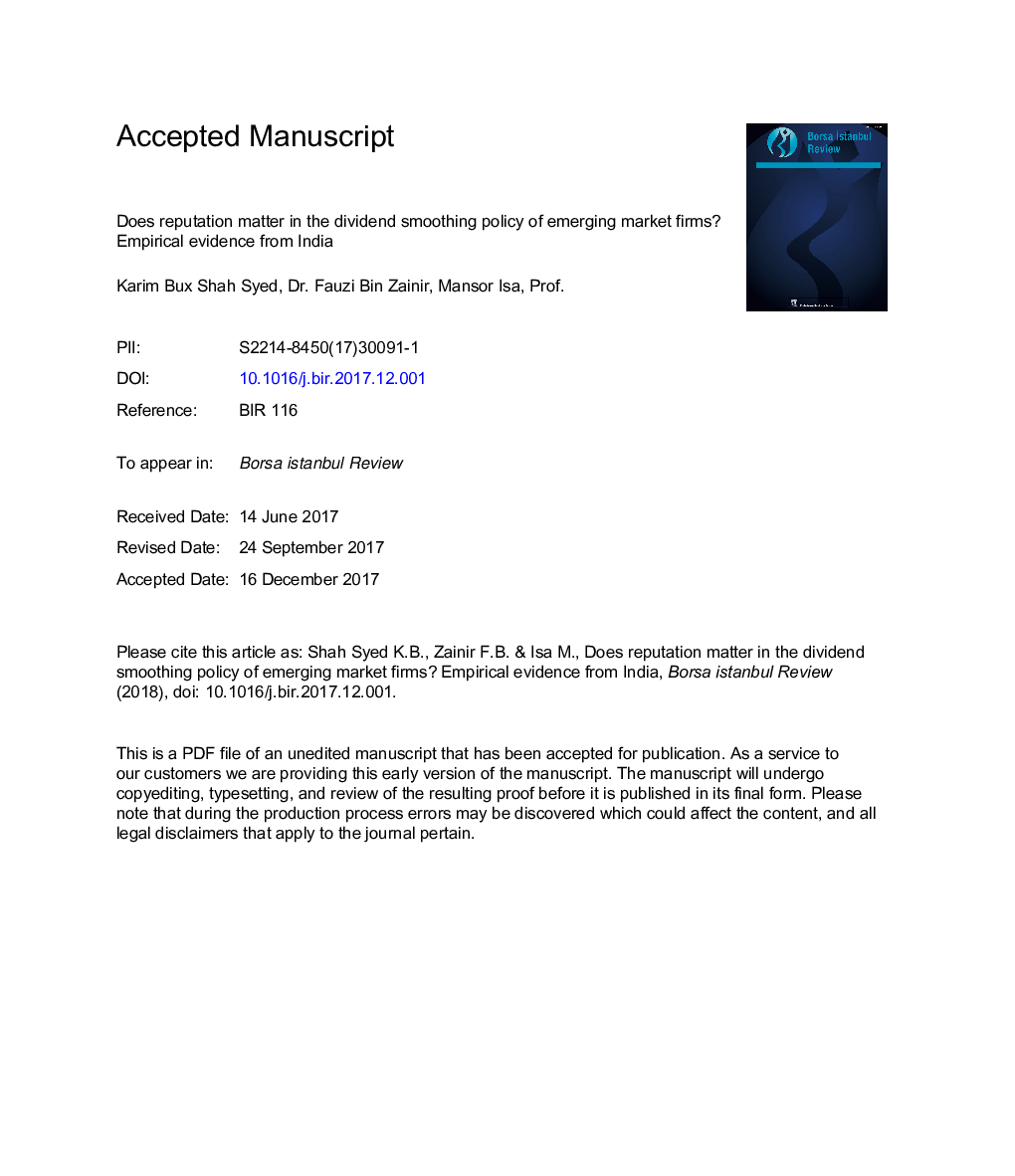| Article ID | Journal | Published Year | Pages | File Type |
|---|---|---|---|---|
| 10226731 | Borsa Istanbul Review | 2018 | 40 Pages |
Abstract
Integrating reputational considerations in the analysis of dividend smoothing, we study the dividend smoothing determinants. We examine the extent to which the asymmetric information and agency costs theories explain dividend smoothing and whether their proxies' impact varies given the firm's reputation as a high- or low-smoothing firm. Our quantile regression results confirm that the determinants vary significantly across smoothing quantiles. In the low-smoothing quantiles, capturing firms with a lower tendency towards smoothing and hence facing lesser or no reputational concerns, the degree of dividend smoothing increases significantly with size, age, and tangibility, whereas it declines with ownership concentration and risk. Interestingly, most of these factors turn insignificant for firms in the high-smoothing quantiles, facing higher reputational stakes. Emphasizing the predominance of reputational effects on the determination of dividend smoothing, these findings help explain the dividend smoothing puzzle: why firms with lesser or no need for dividend smoothing still smooth high.
Related Topics
Social Sciences and Humanities
Economics, Econometrics and Finance
Economics and Econometrics
Authors
Karim Bux Shah Syed, Fauzi Bin Zainir, Mansor Isa,
